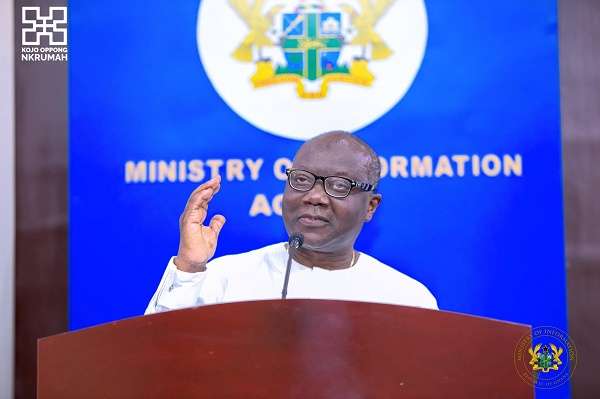Dr Nene Adams Asafotei, a financial economist, has revealed that the current debt exchange programme being rolled out by the Akuffo Addo led government is as a result of the misuse of borrowed funds by the government.
Speaking in an interview, Dr Asafotei opined that the current default status of the country’s economy is self-inflicted.
“The whole debt exchange programme is: this government is owing us and they are defaulting, they can’t pay. How did we get to the point that they cannot pay the investments they have collected from the market? It is basically because they have not used the monies well. We have misused all the monies that we borrowed.
“Why should you create a mess with your friends and cronies, and later come back to the citizens to pay for it?”
Dr Asafotei
According to Dr Asafotei, who is also a lecturer at the University of Professional Studies, Accra (UPSA) the debt exchange programme will affect unborn generations. “Sometimes, we fail to underestimate the effects of our actions on all of us. This debt exchange programme will affect all, including the next generation,” he emphasized.
“It is affecting everything in this country, not just those within, but our image externally. We have become a defaulting country, one which hitherto, was a destination for foreign direct investment, and has now lost the grail as a preferred destination for FDI in Africa.
“Banks are not advancing credit because they are tied on liquidity. They can’t give loans. What that means is that, the level at which big businesses will invest to create productivity and opportunities for employment will be low, hence increase in unemployment.”
Dr Asafotei
On November 24, 2022, the Finance Minister Hon Kenneth Ofori Atta, while presenting the 2023 Budget Statement to Parliament, promised that the programme will not affect existing bondholders.
“Under the Programme, domestic bondholders will be asked to exchange their instruments for new ones. Existing domestic bonds as of 1st December 2022 will be exchanged for a set of four new bonds maturing in 2027, 2029, 2032 and 2037.
“Treasury Bills are completely exempted and all holders will be paid the full value of their investments on maturity. There will be NO haircut on the principal of bonds. Individual holders of bonds will not be affected. I say to you, nothing will be lost, nothing will be missing, and nothing will be broken.”
Ken Ofori Atta

The promise of a `no haircutʼ, however, took a different turn when investors and key players were roped onto the programme, sparking outrage.
Bondholders To Receive 2% Cash Fee In Domestic Debt Exchange
Meanwhile, the Ministry of Finance has announced that participating holders of the 2023 bonds will receive a 2% cash fee.
This is to compensate for the maturity extension. It said the investors will only get new bonds maturing between 2027 and 2032.
The Ministry explained in the Amendments to the Invitation to Exchange that, “Given that holders of Eligible 2023 Bonds are being asked to extend the maturities of what are now effectively short-term instruments, investors will receive a cash tender fee of 2% of the outstanding amount of such 2023 Bonds tendered and accepted, to compensate for the maturity extension.”
The Ministry emphasised that the government has decided to proceed with paying interest accrued up to January 24, 2023 to all Eligible Holders participating in the exchange, in a capitalised form. This means that the accrued interest will be added to the notional amount of the new bonds.
The Invitation to Exchange also emphasized that, there are 12 new bonds in the Amended Exchange, instead of four, with a new coupon rate structure. However, treasury bills remain still excluded from the domestic debt operations.
READ MORE: Minerals Commission Commences Implementation Of Fifth Edition Of New Procurement List























